Politics & International Affairs
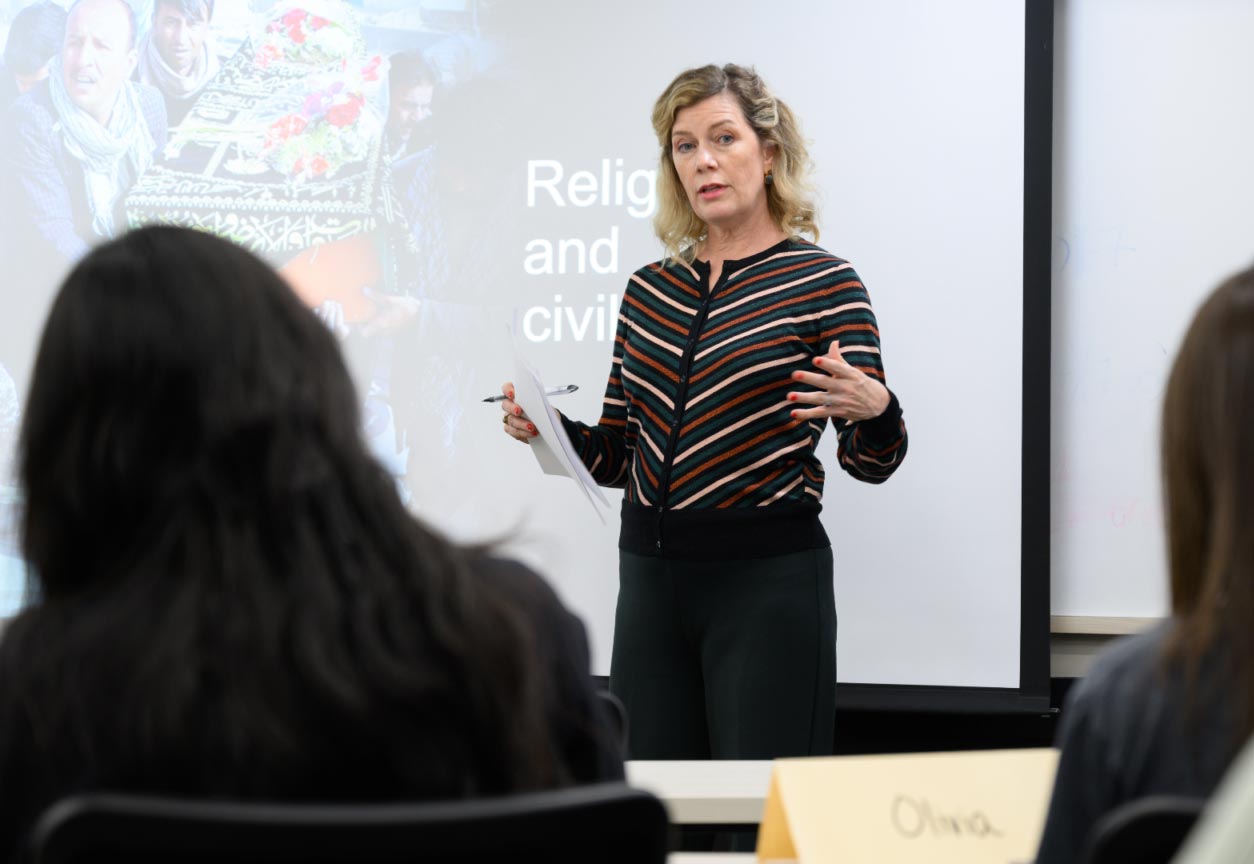
Politics & International Affairs Degree
Bachelor of Arts, Minor
Program Type:
Major, Minor
Career Path:
Law and Government
Program Site:
College or School:
Why study Politics & International Affairs?
Political science is the study of government, public policy, and political behavior in the United States and all countries and regions of the world.
- Politics has been the fourth most popular major over the past 10 years (2016-25), accounting for nearly one of every 10 graduates.
- Six of the 18 Rhodes Scholars in Wake Forest history have majored in Politics.
- Consistent with the University’s commitment to update degree requirements in a changing world, the major requires graduates to take a class in statistics.
The Political & International Affairs degree is offered as a Bachelor of Arts (B.A.) and a minor.
What classes would I take?
Our courses and requirements are designed to educate the whole person and often help students discover interests they had never previously considered. Students often take 100-level courses during their first year of college, while registering for 200-level courses as upperclassmen, and taking a capstone 300-level seminar in their senior year and developing and writing a major research paper for that course.
Sample courses* that you may take as a Politics & International Affairs student include:
100 level
- American Government and Politics
- International Politics
- Comparative Politics
- Political Theory
200 level
- The Politics of Public Education
- American Constitutional Law
- Chinese Politics
- Democratic Theory
300 level
- Senior Seminar in Political Science
* Course availability and offerings can change at any time. Refer to the Academic Bulletin to view all major requirements and current course offerings.
What kind of experience will I gain?
As a Politics & International Affairs major, you will hone the writing, communication, analytical, and statistical skills that are critical to a liberal arts education. The courses offered in the politics & international affairs department will prepare you to conduct research and think critically and independently. The program is geared toward exposing students to wide-ranging topics, approaches, and learning strategies while allowing them flexibility to pursue their interests.
Study abroad, service learning, internship opportunities, faculty-mentored research, and other forms of experiential learning are all incorporated into the curriculum.
Majoring in politics & international affairs can qualify you for many different careers in private for-profit and nonprofit organizations, as well as public sector organizations. Students often pursue careers in business; law; consulting; state, local, and federal government; journalism and communications; international organization; finance; polling and campaign management; community service and non-governmental organizations (NGOs); and pre-college and college teaching.
Political science training also provides valuable preparation for participating in community organizations, electoral politics, movements on behalf of specific policies, and seeking elective or administrative positions in government.
Students in this program will develop the following skills:
- Proficiency in writing
- Effectiveness in communicating complex ideas
- Ability to design and carry out research projects
- Ability to engage with different views and people with differing beliefs
- Ability to interpret and present data
Are there extracurricular activities?
Joining a club or organization is a great way to get involved and do more with your major. Our Politics & International Affairs students participate in the following programs:
- Alexander Hamilton Society
- American Constitution Society
- College Democrats
- College Republicans
- Deacs Decide
- Federalist Society
- Girl Up United Nations Foundation
- Global Food Committee
- Hydrating Humanitate
- International Affairs and Model United Nations Club
- International Justice Mission
- LGBTQ Center
- Pre-Law Council
- Social Justice Incubator
- Student Association for the Advancement of Refugees
- Student Government
- Students Helping Honduras
- Women in Politics
What kind of job can I get?
Careers that often interest Politics & International Affairs majors, and fields our graduates work in, include:
- Account Executive
- Attorney
- Campaign Coordinator
- Chief Financial Officer
- CIA /FBI Agent
- City/Urban Planner
- Commercial Real Estate Agent
- Congressional Aide
- Conservationist
- Consultant
- Credit Manager
- Debate Coach
- Detention Officer
- Diplomat
- Educator
- Financial Advisor
- Foreign Service Officer
- Human Resources Specialist
- Insurance Agent
- Judicial Clerk
- Labor Relations Specialist
- Legal Assistant
- Legislative Assistant
- Legislative Correspondent
- Lobbyist
- Marketing Coordinator
- Litigation Clerk
- Paralegal Investigator
- Peace Corp Volunteer
- Policy Analyst
- Political Analyst
- Probation/Parole Officer
- Public Relations Specialist
- Public Service Worker
- Senator
- Technical Analyst
Politics majors have become leaders in government, business and philanthropy in a wide variety of sectors. They include a deputy attorney general of California; a deputy director of UNICEF; executives for Delta Airlines; an official at The World Bank; and many others.
Related Programs
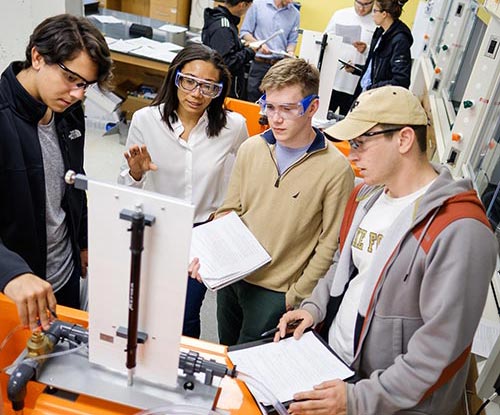
Majors & Minors
Choose from more than 50 majors and over 60 minors to find your perfect fit.

Life at Wake
Take a moment to explore all the student experiences that make Wake Forest unique.
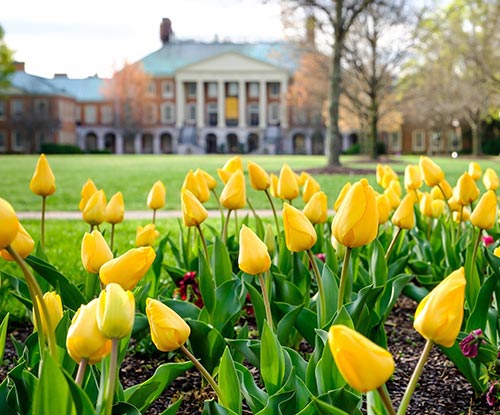
Virtual Tour
Can’t make it for a visit? No problem! Let us show you around campus virtually.
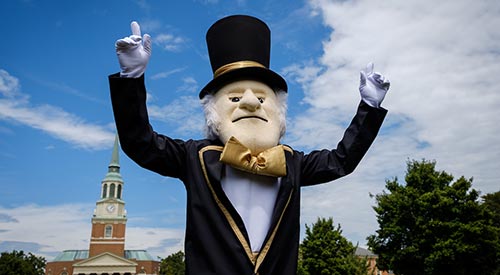
Keep in Touch
Let us know you’re interested in Wake Forest and we’ll do the rest.
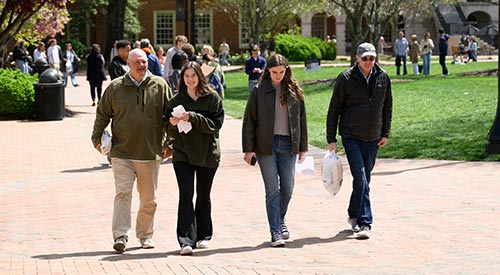
Visit Campus
You truly can’t appreciate the beauty of our campus until you experience it for yourself.
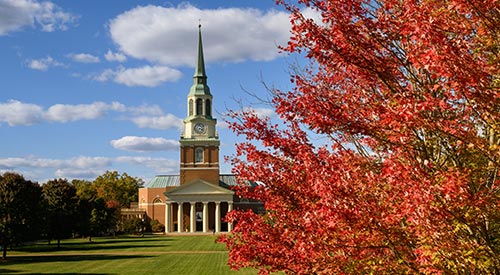
Apply
Want to be considered for our next class of Demon Deacons? Here’s how to get started.
